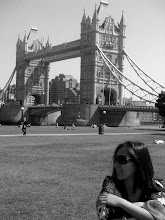
Påskeferie is celebrated dearly by every Norwegian. After all, it's one of the longest holidays in the country and it signifies the coming of spring. Norwegians consistently imbue Easter with a sense of bliss and thrill. There's a national fascination to Easter holiday plans and Easter symbols that is unique to the country. Some of which, if not all, are the following:
Gå på ski (going skiing): Thousands of Nordmen head to the mountains to ski and get some sort of Easter suntan. If the weather cooperates, you'll find them in their shorts and sleeveless shirts while skiing. That's what 6 months of winter does to their mental and physical state:-).
Oranges: Good old-fashioned oranges are ubiquitous in virtually all homes and supermarkets. And they are sold rather cheaply. Oranges and skiing are like bread and butter. They fit perfectly well.
Easter egg: This is perhaps a universal tradition. In Norway, parents give colorful easter eggs filled with chocolate and candies to children.
Yellow, yellow, yellow: This is unofficially the color of Easter. From Easter lilies to Easter bunnies to Easter eggs to candles and serviettes used during Easter dinner, everything seems to be gloriously yellow.
Reading crime novels and watching crime series: For some unusual reason, Easter signifies mystery and crime. TV programs usually feature detective/crime series, bookstores sell crime novels, and Norwegian passionately read these crime stories during the Easter holidays.
Lamb steak: Easter is also the season of the lambs. Early spring is the time of the year that sheep begin giving birth ("lambing"). On a symbolic level, lamb represents Christ; the risen Christ known as the lamb of God. Before our roasted lamb dinner a few days ago, my husband half-jokingly said we are eating Jesus.
Quizzes in TV and radio: Another unexplainable phenomenon occurring during Easter is the widespread airing of trivia and quizzing games. I presume this is linked to the nation's fascination of "solving crimes" during Easter.
Reading crime novels and watching crime series: For some unusual reason, Easter signifies mystery and crime. TV programs usually feature detective/crime series, bookstores sell crime novels, and Norwegian passionately read these crime stories during the Easter holidays.
Lamb steak: Easter is also the season of the lambs. Early spring is the time of the year that sheep begin giving birth ("lambing"). On a symbolic level, lamb represents Christ; the risen Christ known as the lamb of God. Before our roasted lamb dinner a few days ago, my husband half-jokingly said we are eating Jesus.
Quizzes in TV and radio: Another unexplainable phenomenon occurring during Easter is the widespread airing of trivia and quizzing games. I presume this is linked to the nation's fascination of "solving crimes" during Easter.
Apart from all of the above, we did a "harry" (this term is somehow untranslatable, it is roughly defined as "tacky") thing to do - Easter pilgrimage over the border to Sweden, where prices are lower, to buy kilos of meat and liters of alcohol.
In the Philippines and other Catholic countries I believe, holy week (semana santa) is celebrated in solemn grandeur. It starts with Palm (Passion) Sunday and lasts through the days of Maundy Thursday, Good Friday, Black Saturday and culminates on Easter Sunday. The week is replete with rituals and traditions and showcases a stately display of the re-enactment of the Passion of Christ -- a sort of "rites of passage"-- such as processions, passion prayers and plays, mass, and stations of the cross.
It is the time to repent and renew vows and commitment as Christians. It's the death and resurrection of Jesus Christ. In other words, it's the time of penance, grieving, sorrow, and hope.
For all its religious connotations, Holy week is in fact one of my favorite times of the year. There's something to the whole silent, solemnity and gravity of the affair.
At any rate, it was great to get a much-needed respite from work and other temporal affairs of life. Happy Easter!
